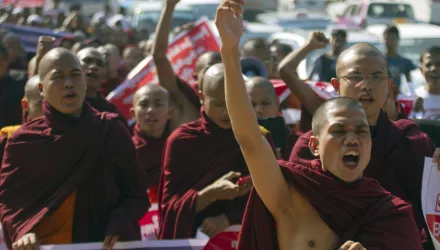Overview
Rape is common during wartime, but even within the context of the same war, some armed groups perpetrate rape on a massive scale while others never do. In Rape During Civil War Dara Kay Cohen examines variation in the severity and perpetrators of rape using an original dataset of reported rape during all major civil wars from 1980 to 2012. Cohen also conducted extensive fieldwork, including interviews with perpetrators of wartime rape, in three postconflict counties, finding that rape was widespread in the civil wars of the Sierra Leone and Timor-Leste but was far less common during El Salvador's civil war.
Cohen argues that armed groups that recruit their fighters through the random abduction of strangers use rape—and especially gang rape—to create bonds of loyalty and trust between soldiers. The statistical evidence confirms that armed groups that recruit using abduction are more likely to perpetrate rape than are groups that use voluntary methods, even controlling for other confounding factors. Important findings from the fieldwork—across cases—include that rape, even when it occurs on a massive scale, rarely seems to be directly ordered. Instead, former fighters describe participating in rape as a violent socialization practice that served to cut ties with fighters' past lives and to signal their commitment to their new groups. Results from the book lay the groundwork for the systematic analysis of an understudied form of civilian abuse. The book will also be useful to policymakers and organizations seeking to understand and to mitigate the horrors of wartime rape.
Praise for Rape During Civil War
"Rape is one of the most devastating forms of violence associated with war, and preventing it requires a deeper understanding of its causes. Rape During Civil War represents the most significant scholarly effort to understand this phenomenon. The breadth and quality of the research is remarkable. Dara Kay Cohen combines cross-national statistical work with in-depth case studies, including extensive original research and interviews with both victims and perpetrators. The result of the effort is deeply impressive and the book will likely serve as the focus of the debate for scholars writing about these subjects for years to come."—Benjamin Valentino, Dartmouth College, author of Final Solutions: Mass Killing and Genocide in the 20th Century
"Dara Kay Cohen's extraordinary work breaks new ground in the study of sexual violence in war. Students of violence have struggled to explain why rape occurs in some conflicts and not others and have had difficulties characterizing the functions of sexual violence that distinguish it from other types of abuse. Cohen addresses both challenges by examining the role that sexual violence plays in solidifying bonds in otherwise fragmented fighting groups. Rape is used as a response to organizational weaknesses and is not just a product of them. Cohen develops and tests the argument using a unique dataset that characterizes the behavior of armed groups around the world and probes the logics through in-depth analysis of Sierra Leone, Timor-Leste, and El Salvador. This is scholarship on violence at its best: innovative, engaged, informed."—Macartan Humphreys, Columbia University, coauthor of Coethnicity: Diversity and the Dilemmas of Collective Action
"In this remarkable work, Dara Kay Cohen first shows that not all rebel groups and state armies rape civilians during war. It is those armed organizations that kidnap their recruits off the streets of their villages and towns that are much more likely to do, she argues. Along the way she debunks many of the myths that dominate policy and public perception."—Elisabeth Jean Wood, Yale University and the Santa Fe Institute, coeditor of Understanding and Proving International Sex Crimes
Cohen, Dara Kay. “Rape During Civil War.” Cornell University Press, August 2016




